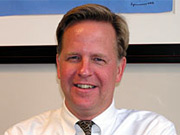The Minneapolis Charter Commission recently shot down two of three proposed changes to the city’s charter – essentially the city’s constitution – that some City Council member’s believed would have made local government more efficient, according to the Star Tribune.
Minneapolis voters will be able to decide whether to keep or scrap the Minneapolis Board of Estimate and Taxation on the November ballot, but a proposal to eliminate the Park Board and create a city administrator to oversee all departments will not be on the table.
According to the Star Tribune, the 15-member commission did so with uneven votes: "11-4 on the city administrator proposal, 12-3 on the Park Board’s elimination. From those numbers, it would be easy to conclude that the co mmission found little or no merit in the two stricken ideas … they voiced concern that the Ostrow group’s proposals were premature, incompletely analyzed and/or flawed in their finer points."
mmission found little or no merit in the two stricken ideas … they voiced concern that the Ostrow group’s proposals were premature, incompletely analyzed and/or flawed in their finer points."
However, they found that the problem 1st Ward councilman Paul Ostrow (who proposed the amendments) wishes to address is real: Minneapolis city government is clunky. "It’s convoluted to have 14 bosses — one mayor and 13 City Council members — overseeing city departments. It’s wasteful for the Park Board to operate as separately as it does from City Hall. And as state aid to cities shrinks and resistance to higher property taxes swells, city government must get serious about efficiency and cost-effectiveness," according to the Star Tribune.
The Minnesota Daily covered this issue in April, and found that the major opposing arguments to these changes was a fear of "centralizing power" in City Hall.
“The people who are in power are finding more ways to get power, and that’s not what democracy should be about,” said Carol Becker , currently one of two elected members of the Board of Estimate and Taxation, which is still on the chopping block.
Paul Ostrow Source: MPR

But Ostrow, who proposed the amendments in late January, said the changes would streamline decision-making process, saving time and taxpayers’ money.
“In a time of incredibly limited resources and challenges for the city, how do we do absolutely everything we possibly can to make government effective and accountable?” Ostrow said.

